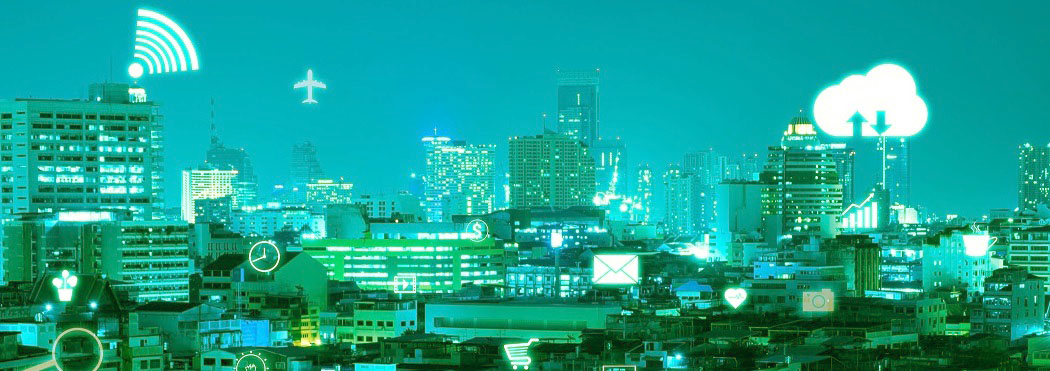
Cities learn how to become “Green in ICT”
Cities account for two-thirds of the world’s overall energy consumption and contribute an estimated 70 percent of the world’s greenhouse gases. If just 100 of the world’s largest cities embarked on a low-carbon development path, global greenhouse gas emissions could be decreased by an estimated 10 percent a year.
A webinar for cities to become “greener” thanks to ICT
On 7th November, the Green Digital Charter organised the “Green ICT” webinar, which provided valuable information and practical examples of how cities can become more sustainable thanks to ICT.
ICTFOOTPRINT.eu was one of the three speakers at the webinar: Silvana Muscella, Coordinator of ICTFOOTPRINT.eu, was joined by Fredrik Eriksson (ICT strategy officer for Swedish “green” city Linköping) and Jaak Vlasveld (director at green IT Amsterdam), the latter of whom is also a member of the ICTFOOTPRINT.eu External Advisory Group, which is composed by international expert opinion leaders who are passionate about IT resource efficiency and green ICT.
Tools and services to become sustainable in ICT
ICTFOOTPRINT.eu gave a presentation on “Services within the ICTFOOTPRINT.eu ecosystem”, explaining how cities and public administrators can become more energy efficient in their ICT, thanks to the tools and service provided on the ICTFOOTPRINT.eu website, such has the map of ICT standards.
Jaak Vlasveld presented tools, solutions and case studies to support the adoption of good practices in green IT. Efficient power management should be enabled at the hardware level (computing resources) whenever possible. Other methods of energy efficiency involve using green clouds, which rely on software applications, virtualisation platforms, and data centre infrastructure.
Sustainable Travel & Tax Policies for “Green Cities”
According to Fredrik Eriksson, the Swedish city Linköping developed a broad range of environmentally friendly ICT solutions in order to become CO2 neutral by 2025.
Linköping adopted new travel policies for its municipal staff. From now on, all business trips that are not deemed explicitly necessary will be replaced by video, phone and web conferencing, reducing the number of such trips.
Additionally, the city recently adopted a “Climate Compensation Programme”, which stipulates that politicians and personnel staff will pay a tax when they travel by plane or any other vehicles driven on fossil fuels. The money will be used to fund climate compensation projects. The city is also producing new environmentally-friendly solutions, exploring new energy sources and promoting recycling procedures for municipal staff, companies and households.
- You can see the full “Green in ICT” webinar here
- See the Green Digital Charter article about the webinar here, with links to speakers’ presentations




 © 2018 ICTFOOTPRINT.eu – ICTFOOTPRINT.eu has received funding from the European Commission’s Horizon 2020 research and innovation programme under the Grant Agreement no 690911. The content of this website does not represent the opinion of the European Commission, and the European Commission is not responsible for any use that might be made of such content.
© 2018 ICTFOOTPRINT.eu – ICTFOOTPRINT.eu has received funding from the European Commission’s Horizon 2020 research and innovation programme under the Grant Agreement no 690911. The content of this website does not represent the opinion of the European Commission, and the European Commission is not responsible for any use that might be made of such content.